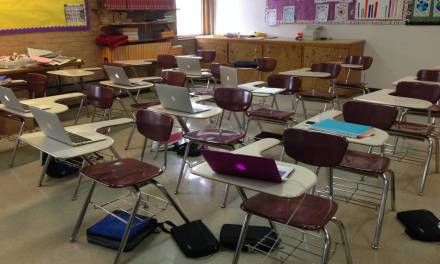Alternative provision while excluded is education and support which should be provided to children who are not able to attend school.
According to the Government: “Alternative provision is too often seen as a forgotten part of the education system, sidelined and stigmatised as somewhere only the very worst behaved pupils go. All pupils deserve high quality education, and while this is often the case, too many pupils are failed by the system and they are not receiving the education that they deserve.“
It is a legal requirement that alternative provision must be arranged for an excluded child from the sixth day of their exclusion from mainstream education (sixth day provision). But not every child in alternative provision has been excluded. This blog post is all you need to know about alternative provision while excluded.
Alternative provision while excluded – a guide
There are three types of exclusion from school:
- Fixed-term: This is for 15 school days or less, including lunchtime exclusions where one lunchbreak is counted as half a day in exclusion terms
- Fixed term: 16-45 school days
- Permanent
What are the rights of representation for fixed-term exclusions?
Schools can’t overturn any exclusions of less than 6 school days and are not actually required to sit to consider an exclusion of this length.
However, the school or academy’s governing body has a duty to consider any representation you may wish to make for exclusions of up to 15 school days per term.
If the fixed-term exclusion is applied for longer than 15 days per term or is a permanent, the clerk must arrange a meeting to consider the exclusion, whether you request one or not. The headteacher and Local Authority Exclusion Officer will be informed of the time and date of the meeting. The governing board is able to uphold the exclusion or direct re-instatement.
Alternative provision while excluded
Dorset council state:
Exclusion from school does not mean exclusion from education. Emphasis is placed on the requirement for parents or carers, schools and governing boards to ensure that pupils are engaging in education during periods of exclusion. For the first 5 school days of exclusion, parents are legally required to ensure that their child is not present in a public place during school hours without reasonable justification and may be given a fixed penalty notice or prosecuted if they fail to do so. Parents should make arrangements to ensure that adult supervision and an appropriate place t do school work is available. Schools and academies are required to supply work to be completed during this time.
For fixed period exclusions longer than 5 school days, the school is required to make arrangements for your child in order to receive the appropriate full time provision – generally off-site from the 6th day. The duty to ensure this is in place rests with the school or academies governing board. if such arrangements are not detailed in the exclusion letter, it is advisable to contact the school during the first 5 days of the exclusion to discuss what arrangements are being made.
The majority of fixed term exclusions are issued for 5 days or less. Maintained schools have the power to direct a pupil off-site for education to improve his or her behaviour. You will be involved in any discussions regarding changes to your child’s education.
What about education following a permanent exclusion?
From the sixth day of a permanent exclusion responsibility falls to the Local Authority to make appropriate arrangements to provide for your child. The Exclusions Officer or headteacher of your local Learning Centre will contact the parent/child.
A permanent exclusion means that it is not anticipated that the child will return to that school or academy. During an exclusion of any length it is extremely important that your child does not go onto the school or academy site at any time unless invited to, for example to attend a Discipline Committee meeting.
Careful consideration is made by authorities to ensure that the next educational provision is appropriate to meet your child’s needs. Normally, every effort is made to seek a place for your child in a nearby school. However, it may be that your child’s needs would be best met by an individual full-time programme at one of the Local Authority Learning Centres, also known as pupil referral units (PRUs). Such individualised provision will centre on a core of essential subjects but will also include other activities which reflect the pupil’s interests and aspirations. You will be fully involved in and informed of any decisions made.
Such arrangements set up for your child will be based on strategies to try to prevent similar problems re-occurring. Following a permanent exclusion, the Local Authority will make educational provision which will allow your child to succeed, rather than set up an unrealistic programme where he or she may fail.
What are the rights for pupils facing exclusion?
The Government recommends a Bill of Rights for pupils and their parents:
- Schools should not rush to exclude pupils: schools should be inclusive
- Parents and pupils have a right to know how often schools resort to exclusion: schools should publish their permanent and fixed term exclusion rates every term, including for pupils with SEND and looked-after children, as well as the number of pupils who leave the school
- Parents deserve more information when their children are excluded: the exclusions process is currently weighted in favour of schools and leaves parents fighting a system that should be supporting them
- Pupils and their parents should have someone in their corner: when a pupil is excluded from school for more than five non-consecutive days in a school year, the pupil and their parents or carers should be given access to an independent advocate. This should happen both where pupils are internally or externally excluded from school or where the local authority is arranging education due to illness
- Parents and pupils should be given accurate information about the range and type of alternative provision that is available locally: all organisations offering alternative provision should be required to inform the local authority in which they are based off their provision. The local authority should then make a list of alternative providers operating in the local authority available to schools and parents on their website
- Independent Review Panels should be able to direct a school to reinstate pupils: legislation should be amended at the next opportunity so that this can happen
Is all alternative provision of high quality?
The Government also state: “The quality of alternative provision is far too variable, with some outstanding provision in places and in others far too poor.”
The teachers, who play the crucial role in the education of pupils, can similarly be of high quality, while in other cases they are not. Even the best teachers may be lacking in suitable training and development, which impacts on the support that child receive. There seems to be high quality alternative provision despite the system, not because of it. There needs to be more collaboration between mainstream schools and alternative provision settings – and we encourage schools and local areas to do this.
Why your alternative provision should choose EDClass
Placing a learner onto an EDClass seat enables instant access to support, tutors and teaching. Learners can follow any type of learning pathway for core, academic and vocational content alongside behaviour repair.
A tailored learning platform can be set up in collaboration with the school and EDClass. It is easy to set up – all the learner needs is a laptop, webcam and headset to start.
The platform is complete with sophisticated safeguarding tools – alert mechanisms, easy access to teachers, eyes-on learning and enhanced DBS checked staff.
Rodillian Academy said:
In just one term at Rodillian Academy, we have prevented a staggering 110 inclusion days, drastically reduced exclusions; over 95% of students who have been expelled from school have completed the required behaviour repair work, along with the specified learning hours required of them. We have increased their attendance through EDClass by 0.9%. Meanwhile in Featherstone Academy within the last academic year we have prevented a staggering 170 inclusion days and increased their whole school attendance by 2.9%.
Read more: alternative provision for school refusers
To find out more, call 01909 568 338.









